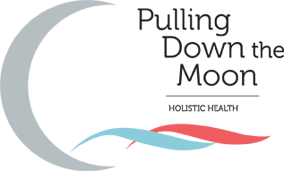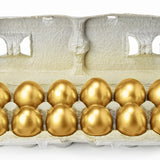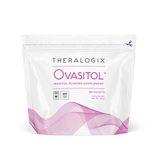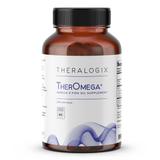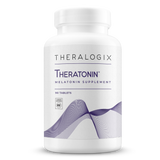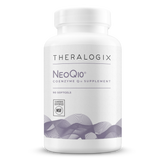Four Nutritional Supplements that May Benefit Women with Egg Quality Issues*
How do I improve my egg quality?
This is one of the questions we get asked most frequently at Pulling Down the Moon. For many years we have believed that there is a direct correlation between nutrition and fertility and now research is confirming that certain nutrients may indeed play a vital role in the conception process at a cellular level.
Pulling Down the Moon's Egg Quality Bundle Pack includes the following supplements that may have clinical benefits for women with poor egg quality:
1. Ovasitol*
2. Theratonin:*
3. NeoQ10 *
4. TherOmega*
As with any supplement protocol, you should always consult your physician before starting. Nutritional consultations are also available at Pulling Down the Moon to help you decide if this protocol might be right for you.
1. Myo-inositol (MI)
Very recently two clinical trials were published that clarified a lot of the unknowns about myo-inositol. Myo-inositol (MI) is a part of the B vitamin complex and is a known insulin-sensitizer. It has also been shown to improve both physical (hirsutism and acne) and reproductive (anovulation and amenorrhea) manifestations of Polycystic Ovarian Syndrome (PCOS). In addition, myo-inositol plays a role in cell growth and early studies indicated that higher levels of MI in the follicular fluid was associated with better egg quality.
Several exciting new studies have emerged that have shed new light on MI and its role in fertility, particularly Assisted Reproductive Technology. The latest study of interest demonstrated that treatment with 4 g per day of MI for three months prior to IVF improved egg quality in women who had failed a previous IVF due to poor egg quality. In this study the treatment also included 3mg per day of melatonin, which I will talk about next.
But first, a note about inositol. For some time there has been a debate as to the efficacy of d-chiro vs. myo-inositol for fertility. We have chosen to use MI in our products because a) this is the form that has been used in all the clinical research we have seen to date on PCOS, egg and embryo quality and b) it is less expensive than the d- form. Now, a new study confirms that myo-inositol seems to be more effective than d-chiro for egg and embryo-quality. On another happy note, MI has also been shown to have a positive therapeutic effect on mood disorders that are responsive to SSRI’s (serotonin selective reuptake inhibitors) including depression, panic and OCD – a potential plus for the anxious, depressed fertility patient!
2. Melatonin
Melatonin is a hormone that is secreted by the pineal gland. It regulates our sleep/wake cycle as well as other hormones, in particular the hormones of the female reproductive cycle. New studies like the one above suggest that melatonin supplementation at a level of 3 mg per day may help to improve egg quality when taken with MI for several months prior to IVF.
There are caveats to the use of melatonin. Side-effects may include exacerbation of depression symptoms and patients who struggle with depression should make sure to discuss this side-effect with their physician. Melatonin should not be used with patients using thyroid medication as it can impact thyroid hormone levels. It can also suppress ovulation at high doses so in general we only recommend this supplement for women who will be using ART and a trigger shot to stimulate ovulation and/or retrieval.
Finally, melatonin should NOT be taken while pregnant or nursing. In general we do not recommend melatonin use for longer than 3 months without taking a break. It can also cause marked drowsiness and is best taken just before bedtime.
3. Coenzyme Q10
CoQ10 is a naturally occurring fat-soluble nutrient that is essential for energy production. CoQ10 has potent antioxidant properties and cell membrane stabilizing effects that make it beneficial for egg and sperm quality, specifically sperm motility. CoQ10 works within the mitochondria (the cellular power stations) in the cells and is essential for energy production. Until recently, CoQ10 was not thought to be a nutrient that required supplementation, as all normal tissue manufactures its own CoQ10; however, this production decreases naturally with age and is also lowered by certain drugs, including statins. When CoQ10 levels in the cells are low, energy production may be reduced and oxidative stress increased as a result.
CoQ10 has been shown to improve sperm quality and is now under investigation for potential use with women of advanced reproductive age undergoing ART to improve egg/embryo quality. The oocyte has among the highest concentrations of mitochondria of all body cells and uses immense amounts of energy in the process of maturation and ovulation. Researchers hypothesize that supporting the oocyte with CoQ10 may improve egg quality (Bentov et al. 2010).
The recommended dosage for overall health is 100-300 mg/day, or as directed by a nutritionist. The dosage under investigation in studies looking at egg quality is higher: 600 mg/day. CoQ10 appears to be a safe supplement: Studies have used supplementation of CoQ10 up to levels of 3,000 mg per day without adverse side effects. At present, the only risk to taking CoQ is the cost, as this supplement can be pricy, and no data currently exists on its usage in high doses during pregnancy.
4. Omega-3 Fatty Acid (EPA/DHA)
There is still no direct clinical evidence that omega-3 fatty acids improve egg quality but we are convinced they are a good bet and include them in our Egg Quality Protocol. Eicosapentaenoic acid (EPA) forms the backbone of many of the chemicals that halt inflammation in our body and also serves to support the health of our cell membranes. Docosahexaenoic acid (DHA) (not to be confused with DHEA above) is important for brain health and adequate stores of DHA are thought to be beneficial for the early cognitive development of the fetus. DHA may also be helpful for depression. Look for purity-tested products.
*This statement has not been evaluated by the Food and Drug Administration. This product is not intended to diagnose, treat, cure or prevent any disease.
